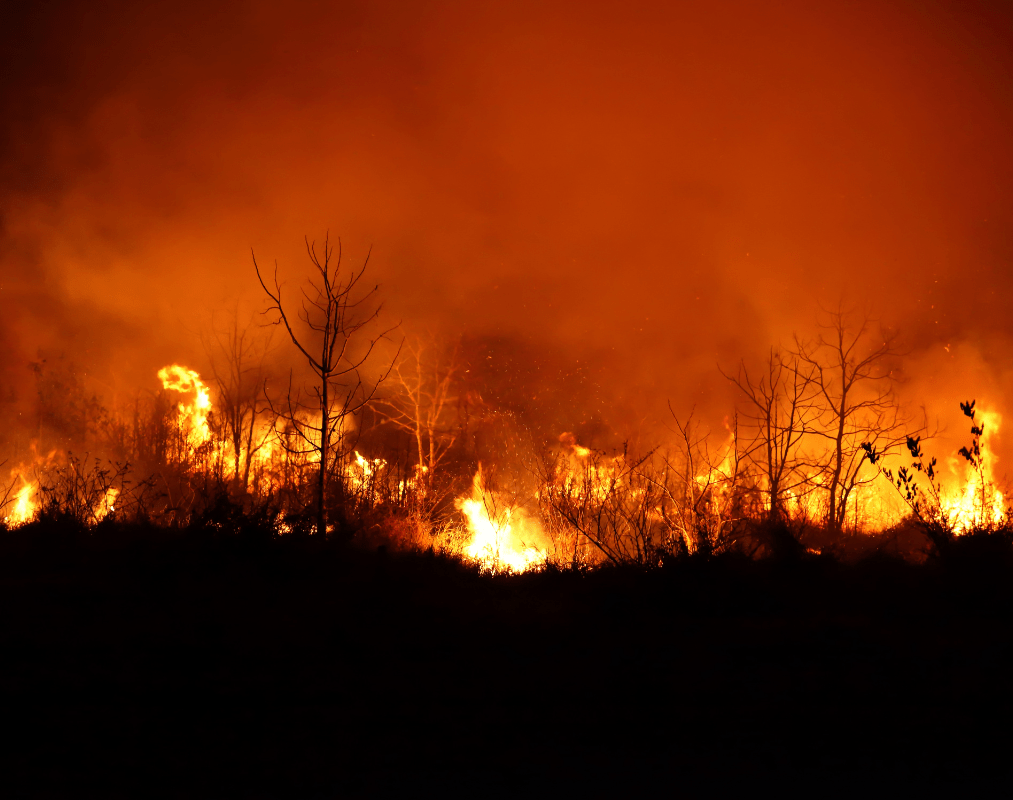What the LA Fires Can Teach Us About Leadership, Integrity, and Crisis Response

Some of you know I began my career in disaster relief. I worked across the globe to help rebuild communities after a disaster.
I spent most of 2001 in Kosovo, overseeing the reconstruction of 15 war-damaged villages. Most of those homes had been burned to the ground, intentionally flooded, bulldozed, or just damaged by battles.
Watching the fires in LA brings those memories back.
Disaster Will Happen
Disasters like this feel shocking. But they aren’t rare. It’s easy to forget how common disaster is and how fragile life, comfort, and community can be.
Not that long ago, Maui burned. I had a project there six months later. Driving through the remains of Lahaina, I was reminded of Kosovo.
Only a few months ago, two major hurricanes tore up the southeastern US. Those communities will need years to recover.
The world moves on – but many people affected cannot.
Truth, Lies, and Uncertainty
Everything I know about the LA fires comes from the news and commentators. Which means I probably know very little. Most of what we hear is framed to capture attention. Not to provide clarity.
The leaders responsible for the response often receive incomplete or low-quality information. In some cases, they are offering it as well.
They say that in war, truth is the first casualty. Disasters aren’t much different.
That’s why building and preserving integrity is so crucial for leaders.
As leaders, we need to make room for uncertainty and resist the temptation to jump to judgments. It’s easy to want to act and find a quick solution. But in dynamic and complex situations, the truth is rarely neat.
Sometimes, the most helpful thing we can do is admit we don’t know.
These situations are complex and messy. But our brains want ‘neat and tidy’ explanations, solutions, and accountability. The media and politicians will play into that.
Instead, accept the messiness. Not all questions will receive answers. And many of the truthful answers aren’t simple or comfortable.
Leadership Always Matters
The fires may be natural, but leadership shapes outcomes.
Leaders don’t control rain, earthquakes, drought, or fires. But foresight, preparation, response, and accountability? Those are entirely about leadership.
I’ve seen this firsthand, whether in the Balkans, Africa, or Indonesia. It’s what motivated me to study and work with leaders. To help them shape better outcomes.
The Need for Help – and Being ‘Deserving’
One of my first disaster relief trainers told me, “Don’t do this kind of work if you expect to serve innocent, deserving people.” It sounded cynical.
But I soon learned the truth of that statement. People are complicated. Communities are messy. We help because it is the right thing to do – not because the recipients fit a neat picture of how we want to view victims.
I suggest that it’s better to show mercy than stand in judgment. No community will be healthy without both. But between the two – mercy is greater.
The Danger of Help
We should help. But help can hurt.
California will receive a flood of resources, and much will lack accountability. There will be waste, mismanagement, and even theft. This happens in all disaster responses.
This doesn’t mean we hold back. But we should be thoughtful. If you give (and I encourage that you do) – do it carefully. Look for non-profits that have strong reputations for accountability and ethical work.
Don’t feel shy about asking tough questions: How will the funds be used? How much goes to overhead (15% is a reasonable benchmark.)
I believe in giving. But I also believe in results. In my experience, transparent organizations are often the most effective. I review financial statements, their board directors, and non-profit tax returns. That information won’t tell you everything. But you can learn a lot.
Lessons You Can Use Right Now
- Leadership integrity and credibility matter. Build and protect yours.
- Clear communication is essential in a crisis. In the absence of information – people will create their own. In the absence of trust, they will assume malevolent intent.
- Don’t make things complicated. But question simplicity.
- We can’t control everything. But we can and should anticipate and prepare for a lot.
- Serve and give simply because it is the right thing to do. Not because of who you are serving or giving to.
- Results matter. Try to serve and give in ways that produce actual results – not just ones that look or feel good.
Disasters like the LA fires remind us of what matters most—our people, values, and leadership. As leaders, our job is to prepare for the unexpected, communicate clearly during crises, and give wisely when it’s time to help.
What are the most likely challenges your organization or team could face? How are you preparing for the unexpected?
If this article got you thinking, share it with someone who might find it helpful.
Take good care,
Christian
Categories
Get Christian’s Newest Book: Train to Lead

Download my free 10-page eBook:
How To Accomplish More Without Doing More:
Eight Proven Strategies To Change Your Life
Discover how to save eight hours during your workweek-even if you're too busy to even think about it. The resource every maxed out executive needs.